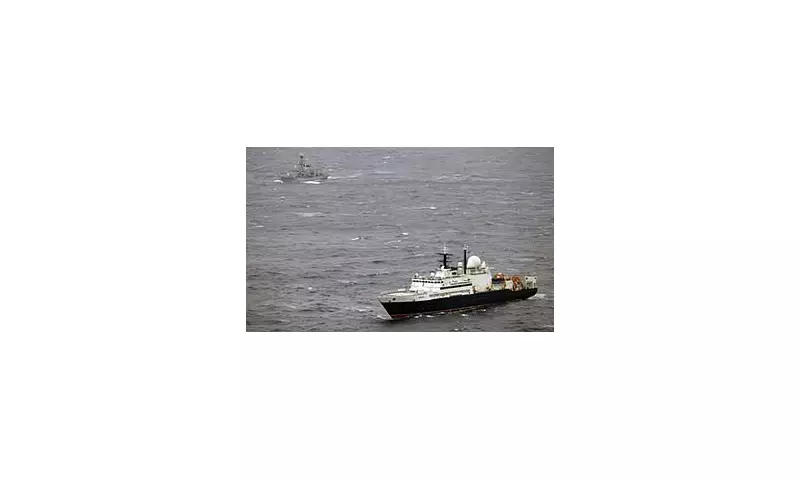
Britain's Defence Secretary has issued a stark condemnation of the Kremlin following a dangerous incident in the North Sea where a Russian 'ghost fleet' ship directed lasers at a Royal Air Force aircraft.
John Healey delivered a forceful verbal warning to Vladimir Putin, confirming that he has provided British pilots with more robust guidance to counter such threats after the dramatic showdown. The confrontation has intensified fears that the Yantar spy ship, part of a clandestine Russian fleet, is actively targeting critical underwater cables and pipelines.
Confrontation with the Yantar
The incident marks the first known occasion a Russian spy ship has used lasers against either the Royal Navy or the Royal Air Force. These devices pose a severe risk, capable of causing permanent damage to pilots' eyesight, with experts suggesting Russian industrial-strength lasers could potentially burn holes in aircraft fuselages.
Mr Healey stated, ‘As I speak, a Russian spy ship, the Yantar, is on the edge of UK waters north of Scotland having entered the UK’s wider waters over the last few weeks. My message to Russia and to Putin is this – we see you. We know what you’re doing. And if the Yantar travels south this week, we are ready. We have military options ready.’
He emphasised that the threat to service personnel is being taken ‘extremely seriously’, revealing that a Royal Navy frigate and an RAF P-8 plane were deployed to track the Yantar's every move, during which the lasers were deployed against the British pilots.
The Threat of Russia's Ghost Fleet
The so-called 'ghost fleet' consists of ordinary-looking ships that Russia claims are for oceanographic research. In reality, they are bristling with surveillance equipment and can launch both manned and unmanned submarines. The 112ft-long Yantar, which entered service in 2012, is a prime example. While it appears innocuous and is not armed with conventional weapons, it is among Russia's most effective military assets.
The ship is operated by Russia's highly secretive Main Directorate for Deep Sea Research (GUGI), an organisation responsible for surveying Western maritime infrastructure in peacetime and is believed to be capable of sabotage during conflict. The submersibles it launches could be surveying or even laying charges on vital undersea infrastructure.
Defence expert Professor Michael Clarke told Sky News, ‘The submersibles Yantar can launch could be surveying cables and pipelines, they could be laying charges. Pipelines are different and don’t have back-up. Russia is building another of these ships. They are very sophisticated.’
UK Response and Wider Security Concerns
In response to the escalating threat, Mr Healey has issued new Rules of Engagement. This updated guidance will permit British ships and aircraft to follow vessels like the Yantar more closely when they are operating within the UK's Exclusive Economic Zone.
This incident is not isolated. The Yantar has been observed in the UK’s wider waters, Ireland’s economic exclusion zone, and was recently escorted from Dutch and Belgian waters. Earlier this year, the Royal Navy submarine HMS Astute surfaced near the Yantar in a clear warning to its crew.
UK military chiefs have repeatedly warned that any successful strike against the country's internet and communication cables would be ‘catastrophic’. The UK relies on around 60 undersea cables connecting it to the US, Scandinavia, and mainland Europe.
The Kremlin has denied the allegations, with the Russian Embassy accusing the UK Government of pursuing a ‘Russophobic path’ and indulging in ‘military hysteria’. However, this event follows a pattern of increased Russian provocation, including multiple incursions into NATO airspace and the deployment of drones that have shut down continental airports.
The continued reconnaissance by the Yantar underscores a report from MPs on the Commons Defence Select Committee, which warned that the UK lacks a comprehensive plan to defend itself against Russia despite the increasing likelihood of an attack.





